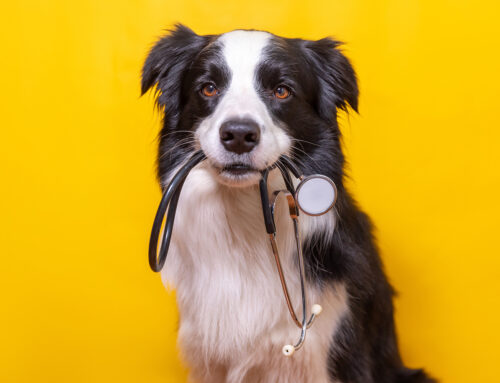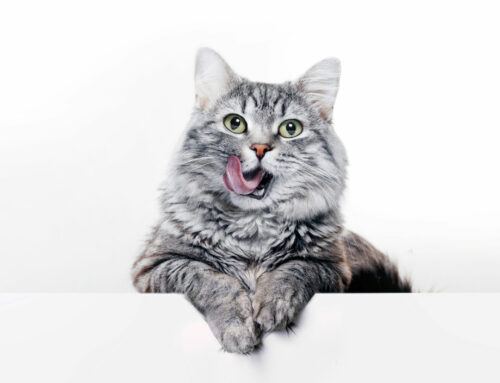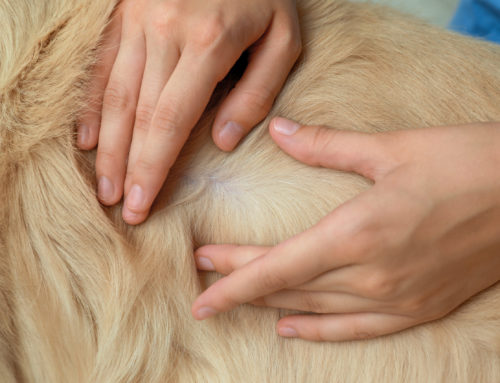Christmas is a great time of year for humans – special foods, festive treats, decorations and all the rest. However, for our pets it’s a different situation – and a much more dangerous one too.
So, what are the particularly hazardous substances at this time of year? We’ve made a series of information to give you a quick spin through some of the most common ones!
Raisins, currants, grapes
Found in:
Mincemeat, puddings, mince pies etc.
Danger to:
Dogs and cats.
Cause:
Kidney failure.
Symptoms:
Increased thirst, reduced urination, dehydration, vomiting, metallic-smelling breath, seizures and collapse. Often fatal.
Macadamia Nuts
Found in:
Festive nut assortments; also some varieties of nut butter.
Danger to:
Dogs, possibly cats.
Cause:
Multi-organ damage.
Symptoms:
Lethargy, weakness or wobbliness; vomiting and diarrhoea, bloated abdomen and pain; depression and arthritic symptoms.
Salted Peanuts
Found in:
Nut selections and party foods.
Danger to:
Dogs and (rarely) cats.
Cause:
Gut irritation and salt toxicity.
Symptoms:
Vomiting and diarrhoea from the nuts. If pets eat enough salt, it causes thirst, lethargy and depression, muscle tremors and abnormal heartbeats. In severe cases, wobbliness, seizures and death follow.
Onions, garlic, leeks and chives
Found in:
Stuffing, stews, Greek salad and many other foods.
Danger to:
Dogs and cats.
Cause:
Red blood cell damage, leading to anaemia.
Symptoms:
Pale gums, shortness of breath, collapse and fainting.
Theobromine and Caffeine
Found in:
Chocolate, tea coffee, energy drinks – dark chocolate and coffee grounds are the most dangerous, but any exposure is potentially harmful.
Danger to:
Mainly dogs, but occasionally cats too.
Cause:
Hyperexcitation of the nervous system and heart.
Symptoms:
Initially, vomiting, diarrhoea and abdominal pain. Higher doses cause drooling, muscle twitching, restlessness or excitement, wobbliness and heartbeat disturbances. Eventually, seizures and sometimes kidney failure occur.
Xylitol
Found in:
Artificial sweetener, some low-calorie baking.
Danger to:
Dogs.
Cause:
Trigger insulin release, resulting in profound hypoglycaemia. Symptoms:
Abnormal behaviour, collapse, seizures and death.
Bones
Found in:
Cooked meats – while raw bones can be risky, cooked bones are prone to splinter.
Danger to:
Dogs, cats and any other animal that eats them!
Cause:
Splintering, causing lacerations and perforation of the gums, tongue, throat or intestines.
Symptoms:
Pain after eating, vomiting, bloody vomit or faeces, collapse, fever and potentially septicaemia.
Rich, fatty food
Found in:
Pretty much everything we eat over Christmas!
Danger to:
Dogs and cats.
Cause:
Stomach upsets and potentially pancreatitis.
Symptoms:
Nausea, vomiting and diarrhoea. If acute pancreatitis occurs, vomiting, severe abdominal pain and dehydration.
Ethanol
Found in:
Alcoholic drinks.
Danger to:
Mainly dogs (cats are usually more sensible!).
Cause:
Neurological impairment, dehydration/acidosis and liver damage (aka drunkenness, hangover and cirrhosis).
Symptoms:
Initially, wobbliness, abnormal behaviour and excitement. Later, weakness, lethargy, nausea and vomiting, increased thirst and collapse.
Poinsettia
Found in:
Festive flower arrangements.
Danger to:
Cats and dogs.
Cause:
Gastrointestinal irritation.
Symptoms:
Drooling, vomiting and diarrhoea.
Tinsel
Found in:
Tree decorations, some cake decorations too.
Danger to:
Mainly cats, potentially dogs.
Causes:
Although not actually poisonous, tinsel if swallowed forms a linear foreign body which acts as a cheesewire, damaging the intestinal walls.
Symptoms:
Loss of appetite, drooling, vomiting (often bloody), lethargy and collapse.
Baubles and other ornaments
Found in:
Tree decorations
Danger to:
Cats and dogs.
Causes:
Can shatter and injure the mouth or intestines; alternatively, if it doesn’t break it can block the bowel.
Symptoms:
Loss of appetite, drooling, vomiting (often bloody), lethargy and collapse.
This Christmas, do your pets a favour – keep them away from anything dangerous, and allow only supervised contact with decorations or leftovers!
If your pet appears injured or ill at all, contact us at once for advice. Don’t worry, we’ll be open for emergencies throughout the holiday!



